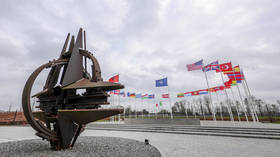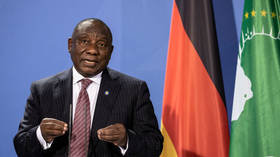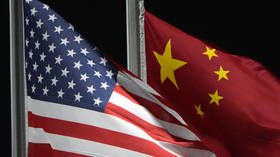China warns of ‘unimaginable consequences’ if nuclear power is forced into a corner

Chinese Vice Foreign Minister Le Yucheng has said globalization should not be “weaponized” and military-bloc politics must be “rejected.” The comments come a day after US President Joe Biden warned his Chinese counterpart, Xi Jinping, that there would be “consequences” if China supported Russia’s military action in Ukraine.
Speaking at the Fourth International Forum on Security and Strategy in Beijing on Saturday, the official agreed with Moscow’s assessment that NATO’s unchecked expansion in Eastern Europe and the failure to address Russia’s national security concerns had paved the way for the current crisis. He said a simple “commitment of no eastward expansion could have easily ended the crisis and stopped the suffering.”
“Instead, one chose to fan the flames at a safe distance, watching its own arms dealers, bankers, and oil tycoons make a fortune out of the war, while leaving the people of a small country with the wounds of war that would take years to heal,” he said.
NATO’s pursuit of “absolute security” leads instead to “absolute non-security,” Le added.
The consequences of forcing a major power, especially a nuclear power, into a corner are even more unimaginable.
Moscow has vehemently opposed NATO’s presence close to its borders, and embarked on a mission to obtain written guarantees that would halt the US-led military bloc’s expansion and bar Ukraine from joining its ranks. However, the West ignored Russia’s concerns.
Russian President Vladimir Putin announced a “special military operation” on February 24, with a stated goal to “demilitarize and denazify” Ukraine, ensuring it no longer posed a threat to either Russia or the newly recognized Donbass republics, which have suffered seven years of grueling siege.
The US and its NATO allies have accused Russia of starting an “unprovoked” war to conquer and subsume Ukraine. Moscow has seen thousands of harsh new curbs and sanctions slapped on it as a result, with the US, the EU, and others seeking to “isolate” and “destroy” the Russian economy.
“History has proven time and again that sanctions cannot solve problems,” Le said. “The sanctions against Russia are getting more and more outrageous ... Sanctions will only harm ordinary people, impact the economic and financial system ... and worsen the global economy.”
Beijing has come under increased pressure from the West to distance itself from Moscow and sever its trade ties, after China abstained from a United Nations General Assembly resolution condemning Russia’s military action in Ukraine, choosing to remain neutral, alongside India, Pakistan, South Africa, and 30 other countries.
In a video conference call with Biden on Friday, Xi stressed that China had always stood “for peace and opposes war,” and urged all parties involved in the conflict to return to diplomacy. In response, Biden warned him that Beijing would face “consequences” should it provide material support to Russia or help it evade Western sanctions.














